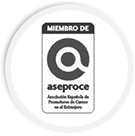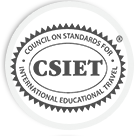Planning your School Year Abroad: follow the steps!
Planning your School Year Abroad! Nacel Checklist Step 1
The appeal of taking a break from school and discovering new horizons through a school exchange during high school years is a dream for many students. The choice of destinations, based on second language skills, brings up mental images full of exotic promise. The following step-by-step checklist will help you work out if you are ready to turn your dream into reality.
Step One: STEADY ASK yourself these five questions to decide if you meet the fundamental requirements to consider a school exchange abroad.
- Are you the right age? If you are under 13, then you will need to wait until you reach the minimum age for our programs. At 13 you can choose between Ireland, Australia, and New Zealand At 14 go to Germany, Italy and Spain in Europe or Argentina, Chile, Mexico, and USA private high schools in the Americas. At 15 the world is your oyster, although there are a couple of programs in the UK and France where you'll have to wait until you're 16. At 17, you'd better hurry as it's the last year you can travel on most programs although a few are available until your 18th year.
- Do you speak the language? Remember that in most cases your native language will not be used in a school abroad. You need to have at least two years of language study before you can consider going abroad. Think how miserable youd be were far away from home and with no-one to talk to.
- Have you told your parents? They will have something to say about you going to study abroad! They will be your greatest ally and the most important source of support: practical, emotional, and financial, as you prepare your trip and during your time away from home.
- Have you thought about the cost? Doing high school abroad is expensive, starting at over $3,500 for one term in Chile and going up to over $20,000 for a whole year in Australia. On top of that, you'll need to budget for additional costs such as visas, flights, insurance, books, uniforms, and more.
- Are you ready? If you got through the first 4 questions, then ask yourself if you could leave your home, your family, and friends for months at a time and go to a country where everything is different: the climate, the food, the schedule, and especially the way of life.
Here are some skills that will make it easier for you to adapt to having your life turned upside down:
- Do you help out at home? Nothing will please your host family more than having a guest willing to help out with family chores. It will also bring you closer and help you integrate into family life more quickly.
- Have you traveled before? If youve already traveled abroad and been aware of the differences with your own culture and struggled to get yourself understood, then you know what to expect.
- Can you disconnect? You'll have a better chance of making new friends and settling into your life abroad if you don't spend your time talking to your family and friends back home. Skype may be free but it will cost you the opportunity to make the most of your new surroundings.
If you think you've made the grade come back next week to find out about step two!
Planning your School Year Abroad! Nacel Checklist Step 2
GET READY Before considering a school exchange abroad, you need to do a bit of soul searching to answer some essential questions described in more detail in Step 1:
- Do you speak the language well enough?
- Are you between 14 and 18?
- Do you think you can live away from home for several months?
By now, you have discussed these with your family and are now researching your options. In this section, we cover some key issues you should consider to help you choose and apply for a school exchange abroad.
There is much to learn during a school year abroad, such as how to adapt to new situations, integrate into a new culture, learn a new language and discover a new perspective on life. However, this is not your school and so its not business as usual in terms what courses are offered. Use the following checklist to help you determine which type of program is right for you.
Research your destination Choose your program, its length and the country you are going to visit! If you want to learn Spanish, will you go to Spain or South America? Not only is the local culture completely different, but so is the natural environment and of course the accents. Learning Spanish in Spain could be compared to learning English in England, whereas Spanish in Argentina might be compared to English in Australia!
- How long do you want to go for? Some schools offer short exchange periods for one term or one semester, while others only accept students for a whole year. If you have never traveled without your family before, you may want to try a summer program first, such as a homestay, where you experience living with a family in a foreign culture and find out how well you cope away from family and friends for a few weeks.
- Do you need to convalidate? This is a process where you translate the grades and credits you earned during your exchange with the host school, for credit in your high school back home. Convalidation requires that you submit official, signed and sealed school transcripts to receive a seal of validation (apostille) from identified agencies to certify your grades as authentic. You can then provide the grades to your high school for transfer credit.
- Do you want to graduate abroad? Some schools offer this option if you are prepared to follow a two-year course of study, such as our A-level programs in England, or by taking 12th grade in the Nacel International School System (NISS), where you can graduate with the American high school diploma and advanced placement courses. Once you have decided on a program, gather as much information as possible about the school system, courses, grade system etc. With this information, you can create a simple report of your program abroad, with the classes you expect to take.
Ask your school You will need your school's support before the trip and after you return. Your school counselor can help and advise you about your plan to study abroad. You need to prepare a clear and objective presentation of your study abroad program, to negotiate for transfer credits with your school. You can also speak with your language teacher and try to involve him/her in the procedure, especially if he/she encourages you to study abroad or has a good knowledge of the educational system abroad. Remember that schools in most European and Latin American countries follow a fixed curriculum with mandatory subjects. You cant pick and choose the courses you take, and each country teaches literature, history and geography from its own perspective. Dont expect to read American literature in Chile!
Add it all up Work on an overall budget for your trip abroad. You will need to factor in the following costs:
- Cost of the program
- Medical insurance
- Return flights
- Trips and excursions
- Visa and immigrations requirements
- Pocket money
Apply to the program Nacels school exchange programs are selective. Before you apply, we organize a phone interview to discuss the program with you and ask you a number of questions to determine whether you have thought through all the points discussed so far, in this article. We also ask to speak with your parents and even with your siblings, to help us understand if your family is ready to see you leave home for an extended period of time; to make sure they will help you through difficult times, while you are away from home, without giving in to the temptation of shipping you home at the first signs of homesickness! You will then need to fill out the application form, get your school transcripts for the last three years and a recommendation from your language teacher. These will make up your application file that will be presented to your future school principal who has the last say in your grade placement. A good academic average will increase the likelihood that you will be placed in your corresponding grade. This in turn will make it easier to transfer the courses you take into matching credits in your home school.
Congratulations! Youve been accepted on the program. Now the real work begins. In the next article, read how to prepare for your upcoming trip and anticipate the inevitable challenges that you will confront during your time abroad.
Planning your School Year Abroad! Nacel Checklist Step 3
Step 3 - GO! Once you have returned your completed application form and been accepted on a high school exchange program, you will need to wait a few months before you find out about your school placement. Frustrating as it may be, to wait that long, there is much you can do to prepare your trip, that will make it easier to adapt to your new country and help you make the most of your experience.
RESEARCH
Gather as much information as you can and get to know all aspects of the country. These are some practical questions that you should have worked out before you go.
- How much do things cost? While the main costs of your year abroad, such as accommodation, food, transportation to school, are covered by the program, there will other expenses to cover. Your host family is not required to pay for snacks, activities and the like. You will also need to buy a uniform and school books. To prepare, find out about the local currency, the exchange rate and practice the conversion when you go out shopping at home, so it's not a shock when you have to pay one thousand colones for something that costs two dollars! Look-up the big-mac index" to compare the value of standard items, such as a big-mac, in the local currency.
- What's the weather like? This will be very important when it's time to pack. If you are going for a whole year, find out if there are big variations in climate. Packing for Canada with its freezing winters and hot humid summers will require more thought than Costa Rica where temperatures stay above 18c. all year round. Remember that most school programs require a uniform, so that will make up the bulk of your wardrobe which you buy once you get there. Sometimes, people forget that they can wash clothes locally! If you pack as though you were going for a two to three week holiday, that should be enough. Consider bringing small gifts for your host family, which will make room in your suitcase for all the stuff you want to bring back home!
- What is there do? Each culture enjoys a way of life which is different to your own. This lifestyle will be part of your life soon: what you eat, what time you wake up and go to bed, the activities you can enjoy after school, and the family members you will interact with. You will be expected to live as member of your host family and while it sounds very exciting, the unfamiliarity is often a cause of homesickness. How will it feel to swap your orange juice and toast breakfast for a Pho chicken soup in Vietnam? This is an extreme example, but even small changes to a well established routine can be disturbing. You can also learn more about the history, geography, politics and tourist destinations, but you can find out about all those things once you are there. The key to integration is to anticipate how your daily life is going to change and packing a few granola bars, some favorite snacks or toy to keep a taste of home close at hand while you settle in to your new home.
PREPARE
You will need to plan ahead where it comes to your travel plans and your school work in the six months leading up to your departure.
- What courses will you take? This will depend on the difference in the education system of the two countries. Here are two approaches to consider. If you are in a system of high school credits, then plan to take the courses required for graduation that are not available abroad, such as American literature, Canadian studies, or specific courses in geography and history. Curriculums usually cover similar topics in maths and the sciences, making it easier to obtain credits for the coursework you cover abroad. If, on the other hand, you have required core subjects, with some electives, consider your choice of electives carefully so they match up with what you will be learning abroad, starting with the language!
- Are your travel documents ready? Your passport needs to be valid for at least six months after you return from your trip, so check the expiry date and give yourself plenty of time if you need to renew a passport or you are applying for the first time.
Find out about visa requirements, by contacting the consulate for the country you are going to, and get information about which forms to fill out and supporting documents you need to provide.
- Know what the visa application procedure involves.
- Will you need to go to the embassy or can you apply online?
- How long do you have to wait for the approval?
- You can only apply for the visa once we send you the formal acceptance documents from the school. Sometimes, they arrive late, so it's best to have everything else you need for your visa ready to go as soon as you get them. You're on your way!
Do you have a plan B? If you are traveling alone for the first time, then consider using the airline's unaccompanied minor service. If that's not available, plan your trip carefully and know what to expect in each airport, you can find maps of airport terminals on the internet. Always leave plenty of time for flight connections, allowing two to three hours for most airports and at least four hours for connections in the USA where you have to pass immigration control. Make sure you travel with the emergency phone numbers we send you. If you have a mobile phone, program these numbers into your Skype account, that way if there's a delay, or if you just want to call home and say everything's OK, you can connect to a local airport WIFI hotspot. Remember that you need Skype credit to make calls to a phone number. Discuss what you will do with your parents if something unexpected happens, such as a canceled flight, then stick to the plan.
Are you doing your bit? At last you've arrived in your host family and your first week is full of new discoveries. After the initial whirlwind, you will probably start missing home, your family and your friends. Feeling homesick is a natural part of the adjustment process, but hiding in your room, spending hours online talking to friends back home and shutting everything else out, will only make you feel worse. Now is the time to open up, get involved in the daily family chores so you can find a good rhythm for your daily routine. Talk to your new family about life back home, they will love to hear your stories and it will help them understand how different life feels for you now. Try not to judge and compare negatively, instead say yes to every new experience. Getting involved in life will help you make new friends, which is the most effective way to beat the blues. This high school year abroad is probably the most challenging and significant action you've taken in your life so far.
The experience will make you fluent in a second language, open your mind to other ways of life and give you a confidence to overcome future challenges. It will also reflect favorably on your college admission application and later still, when you are looking for a job. If you talk to a man in a language he understands, that goes to his head. If you talk to him in his own language, that goes to his heart. Nelson Mandela
Live with a Family and spend a year abroad with a High School program!
If you're eager to improve your skills in any foreign language, take this opportunity!
- The Academic Year Program enables a young student (between 13 and 18) to go for the whole academic year abroad.
- You can also take part in for a shorter period! You'll live with a host family or in a student residence, and study the local school.
- The program is available in lots of countries!
Here is Amanda's testimonial, who has taken part in the Academic Year in Argentina:
"This past year has been a once in a lifetime experience and has given me different perspectives on my life and the world. My year has been full of new experiences, new views on the world, and new friends. I have become part of a family, which is one of the best things that we can appreciate in Argentina. Family life here is so different! Above all, I have improved my Spanish and experienced the Latino culture. I'm happy I enrolled for this program with Nacel! I had full support, affection and my rep was available every time I needed her. An unforgettable year!!!"
Don't be in doubt. Nacel is here to assist you!
We'll be here to support you every step of the way. 😉
With over 65 years of experience, we can help you every step of the way, from the idea to the decision to the trip and back again.
Start your plans now, whether it's for yourself or your children!

Céline Gibassier is an Educational Advisor at Nacel International. She shares her passion for cultural exchange and language travel with students who want to study abroad and live new experiences.
She studied at Sciences Po Strasbourg and spent time abroad, giving her both strong academic knowledge and practical experience in student mobility, program development, and host family coordination.
Based in France, Céline has built a wide international network in the language travel and education fields. In her role, she helps students and host families work well together, ensures quality service, and supports meaningful and life-changing travel experiences.




























